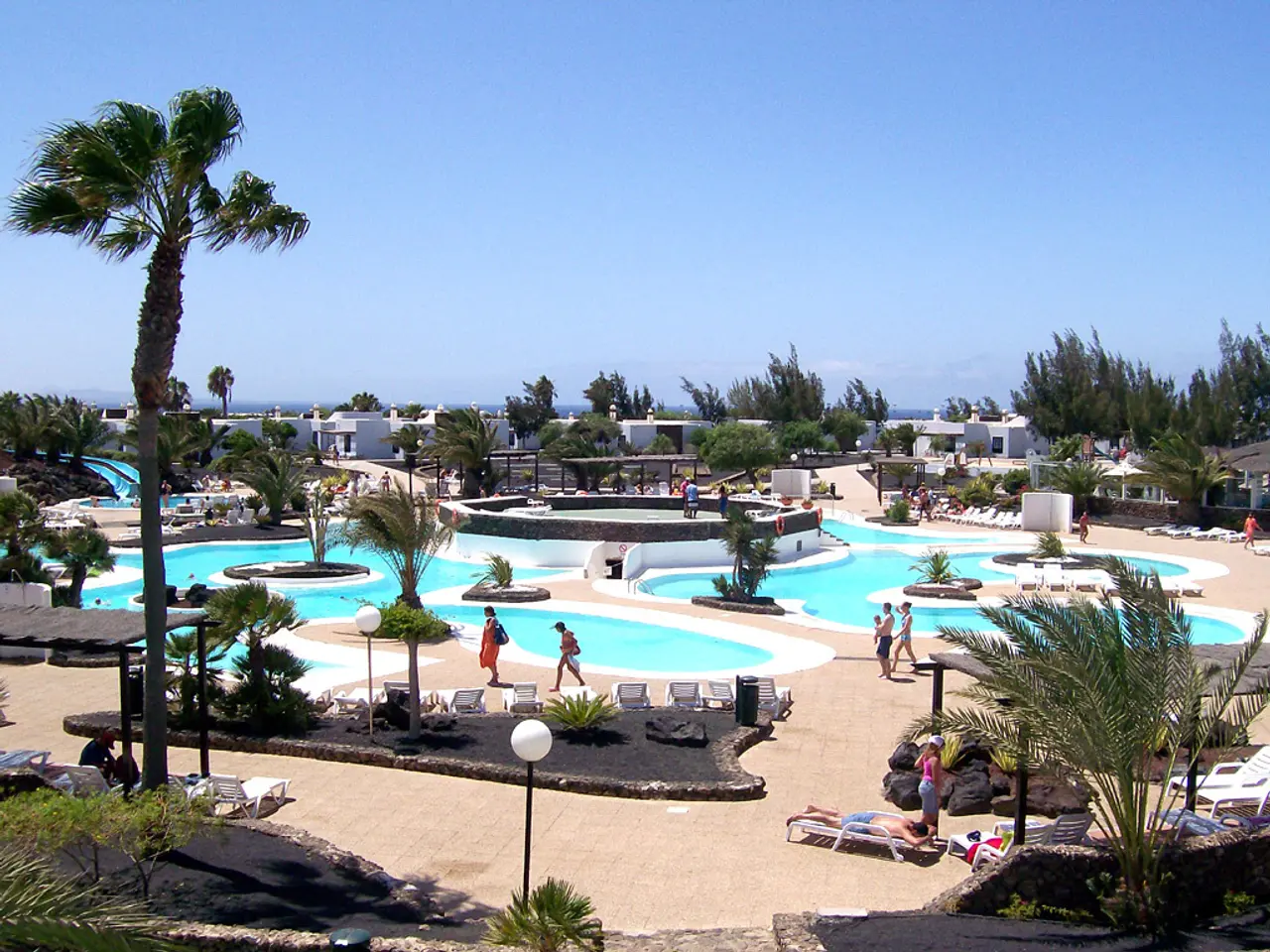Chamonix Advancing Gradually, According to Full House Statement
Full House Resorts, the casino and hotel company, has reported a mixed performance in its Q2 2025 financial results. While the company saw a slight 0.6% increase in revenue to $73.9 million, the net loss worsened by 20.3% to $10.4 million compared to the previous year [1][3][5].
The casino segment remains the primary revenue source, with significant contributions from the American Place Casino. However, the Colorado operations, including the Chamonix Casino Hotel, reported a 7.8% revenue increase but faced operational challenges leading to losses [1][3].
To address these challenges, Full House Resorts is focusing on cost reduction measures expected to save $4 million annually, alongside revamped marketing efforts initiated in Q3 2025. These measures aim to address operational inefficiencies at Chamonix and drive profitability improvements [1][3].
Additionally, the company plans to leverage poker room additions and increased marketing to boost growth, although no specific quantitative guidance was provided [1][3].
President Lewis Fanger reported growth in the database of the temporary casino in Waukegan, Illinois, to 107,000 names. Meanwhile, CEO Daniel Lee is deploying artificial intelligence to restructure the marketing department at Chamonix and making improvements with the laundry contractor and outside housekeeping staff [1][3].
However, Full House Resorts is facing significant financial risks, including a $450 million debt maturing in 2028 and liquidity constraints, which shape its cautious approach to sustainable expansion [2][5].
In Colorado, Chamonix is growing gambling revenue without cannibalizing the market. Despite initial underperformance, Lee compares Chamonix to the initial underperformance of the Beau Rivage in Biloxi, indicating optimism for its future performance [1].
Elsewhere, Full House sold Stockman's Casino in Nevada and is experiencing underperformance at Silver Slipper in Biloxi. The revenue dip at Silver Slipper was attributed to a cutback on "over-comped" players and the closure of the parking garage during a critical weekend due to a collapsed ramp [1].
In a bid to reinvent Cripple Creek's image, Fanger opines that Full House needs to attract top-tier players, while Lee contends that Chamonix is insulated from events in neighboring states and there is no new gambling construction in Colorado [1].
Full House is also working on relocating its Indiana license, with the state's Casino Control Commission actively studying the issue [1].
[1] - CNBC [2] - Yahoo Finance [3] - Seeking Alpha [4] - Casino.org [5] - Bloomberg
- The casino industry's financial landscape is being navigated by Full House Resorts, with a focus on cost reduction measures to improve efficiency at Chamonix Casino and boost growth.
- In a challenging business environment, Full House Resorts is grappling with significant financial risks, including a large debt maturing in 2028 and liquidity constraints.
- While the company saw a slight increase in revenue, the casino segment remains the primary revenue source, with contributions from American Place Casino, but Colorado operations, including Chamonix Casino Hotel, faced operational challenges leading to losses.
- Apart from cost reduction, Full House Resorts is exploring other strategies for growth, such as leveraging poker room additions, increased marketing, and artificial intelligence to restructure the marketing department at Chamonix.
- Full House Resorts is venturing into wealth management and personal finance, as indicated by their attempts to attract top-tier players, reinvent Cripple Creek's image, and potentially relocate their Indiana license, beyond the realm of casino-and-gambling and into banking-and-insurance and real-estate.




